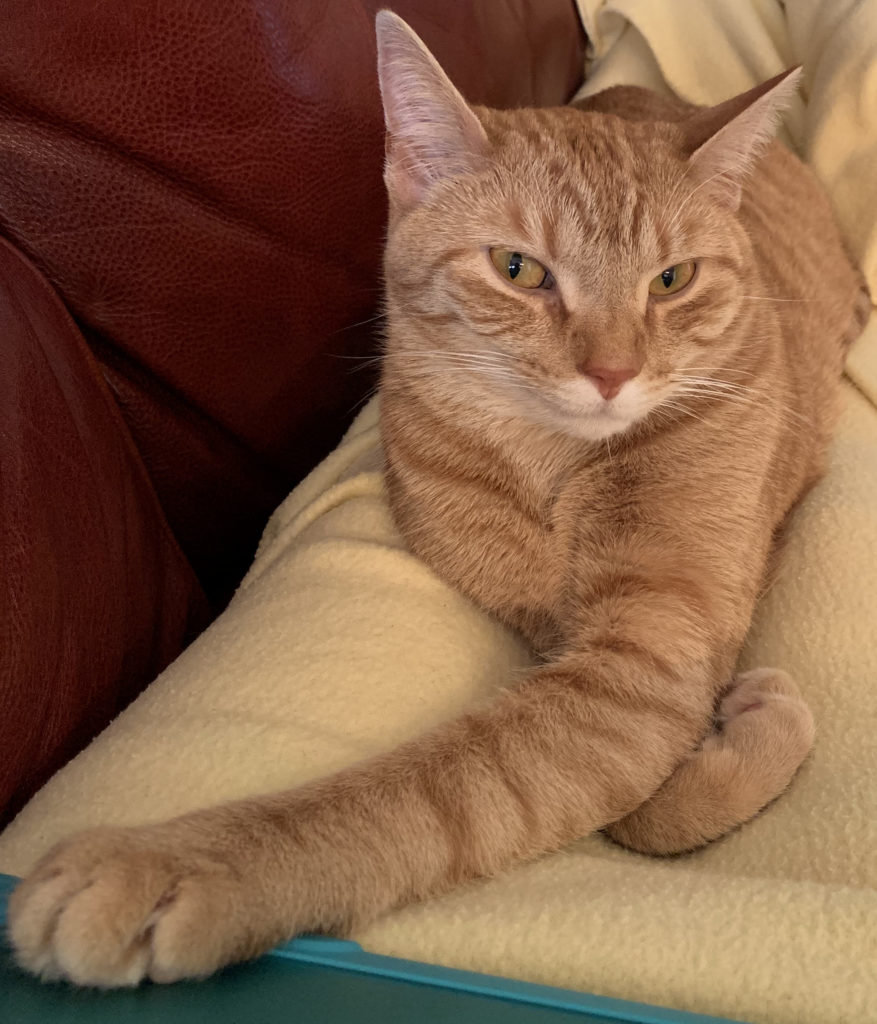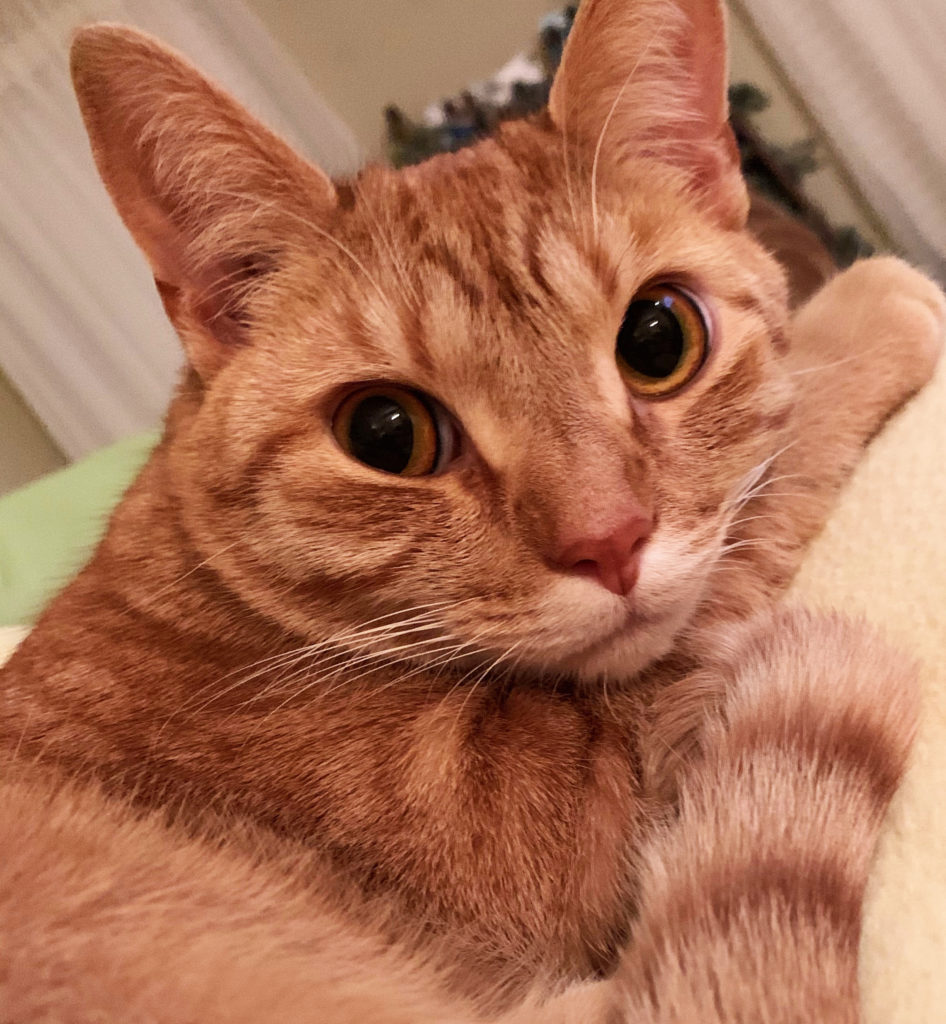I used to dislike cats. Growing up, I saw person after person come to school or church covered in scratches from their cats. Give me puppy kisses! I wanted no part of those painful looking scars. Then, my husband brought home Dino. I learned when Dino needed his space. He learned that he didn’t have to use teeth or claws to get my attention. So, this week’s cat-tastic review is sponsored by Dino cuddles. Let’s look at Clover Kitty Goes to Kittygarten by Laura Purdie Salas with illustrations by Hiroe Nakata.
Clover Kitty Goes to Kittygarten

As I scrolled through the list of July’s Amazon First Reads offerings, the term “kittygarten” stopped me in my tracks. The play on words instantly won me over, and the rest of the book did not disappoint! The book follows a “sensory-sensitive” kitten. In that vein, the pages are filled with such richly detailed images that I wanted to read the book slowly. Then, there’s the thoughtful narrative. Specific details fill every page spread. This allowed me to experience the sights and sounds of kittygarten as Clover did. Truly, I understood why Clover wanted to run! Then there’s the sweet little friend Oliver who gently and persistently tries to be Clover’s friend. Their dynamic had me saying “aww!” through the whole story.
In addition to the specific and believable details, Salas timed Clover’s character development perfectly. She establishes what Clover expected from her environment and the shock when kittygarten clashes with those expectations. Salas shows the several day process of Clover inching out of her shell. Finally, Salas portrays Clover’s willingness to try again. Plus, I absolutely loved that the solutions to Clover’s sensory concerns came from Clover herself. She figures out what she needs, and she puts her plan into action. The other students support her and embrace her presence. The book acknowledges that Clover sometimes still has bad days, but her solution helped her cope.
Practical Faith

Clover Goes to Kittygarten never espouses any type of faith in its pages. However, I found that reading the book helped me better understand what sensory-sensitive people experience. Particularly when I work with children, I now know how to make the environment a more calm and inviting place. Additionally, Oliver provides a solid example of persistent friendship. Oliver recognizes Clover’s sensory needs and alters his behaviors to adapt to them. Then, there’s Clover’s decision to advocate for herself. She finds solutions for her sensory concerns and implements them. I found Clover Goes to Kittygarten to encourage compassion, confidence, and true friendship. Whether you are sensory-sensitive or someone who doesn’t mind lots of sights and sounds, this book has a character for you.

Comments are closed.